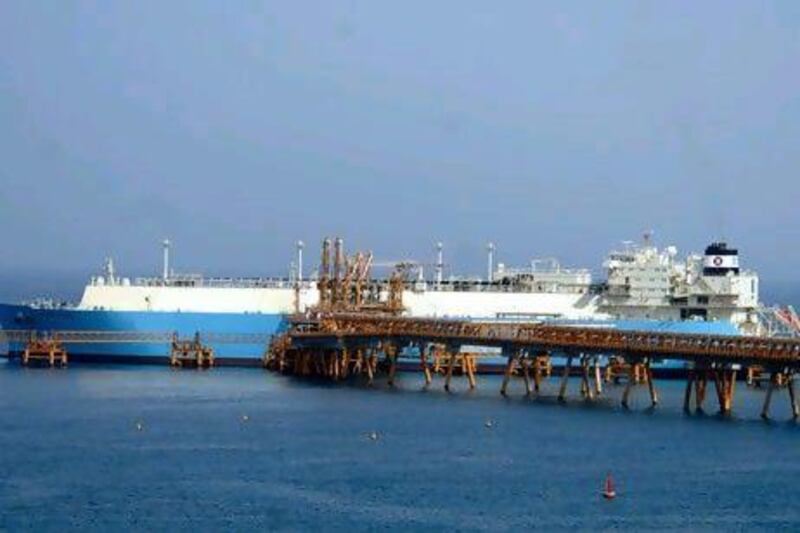Foreign oil and gas producers are pulling staff out of Yemen while the French energy group Total, the country's biggest energy investor, has warned of possible force majeure affecting exports of liquefied natural gas (LNG).
Unrest in the country could lead to supply disruptions, a Total spokeswoman told customers of Yemen LNG, a group the company leads.
"This is a notification of a possible force majeure event, because for now production is still ongoing," she told Reuters.
"If the situation [in Yemen] is ongoing, we have to advise our buyers that there could be a problem."
Force majeure is a clause exonerating a company from its obligations in the event of extraordinary circumstances.
The US$4.5 billion (Dh16.52bn) LNG plant in Yemen, which was inaugurated in 2009 after years of delay, has a production capacity of 6.7 million tonnes a year.
It was supposed to supply the country with enough export revenue to offset declining oil output, but was brought on stream just as gas prices plunged worldwide due to the global downturn, enormous additions to LNG capacity in Qatar and the US shale gas boom.
Yemen's oil production has fallen from a peak of 420,000 barrels per day (bpd) in 2002 to about 300,000 bpd last year, but still accounts for 70 per cent of the state budget. It may soon fall further. Last Tuesday, the Austrian petroleum group OMV said it was reducing staff in Yemen and had travel restrictions in place.
The company's oil production had been curtailed pending the repair of a pipeline to an export terminal on Yemen's coast, said the OMV spokesman Sven Pusswald.
The pipeline, operated by Total and designed to carry 120,000 bpd of crude, was attacked by militants on March 14 for the second time in five months, halting output from two fields.
Last week, DNO International, a Norwegian oil producer operating in Yemen, relocated its 10 expatriate managers to Dubai.
About 250 Yemeni employees remain in the company's remote southern oilfields.
"So far our operations are continuing," said Tom Bratlie, a spokesman for DNO. "We have, of course, increased security. We have continuous dialogue between our offices in Yemen, Dubai and Oslo so that we have the most up-to-date information."
Yemen's Petroleum Exploration and Production Authority said last Monday that DNO would soon start production from a new oilfield, at an initial rate of 10,000 bpd.
That would more than double the company's Yemeni oil output of about 6,200 bpd.
Mr Bratlie said DNO was sticking with its announced plan to start pumping crude from the field in the first quarter of next year. Most of the recent violence has taken place in cities far from the country's oilfields, he added.
The Canadian company Nexen, which has pumped oil from southern Yemen for 25 years, said it was conducting business as usual.
"We've not been affected in any way and continue to operate with safety and security in mind," said Pierre Alvarez, the company's vice president of communications.
Nexen's stakes in a number of Yemeni oilfields account for about 40,000 bpd of net production.
But even output from remote oilfields could be halted if the conflict disrupts port operations, or if saboteurs continue to target pipelines and processing plants.
"The reasons to fear are significant for the oil industry, with tribal or al Qa'eda strikes on oil facilities and employees taking place in Yemen on a high level," said Samuel Ciszuk, the senior Middle East energy analyst with IHS Global Insight.
"The coming weeks will be challenging and threatening, as Yemeni security forces appear to scramble to the northern heartland, leaving oil companies exposed in one of the most hostile areas of the Middle East."





